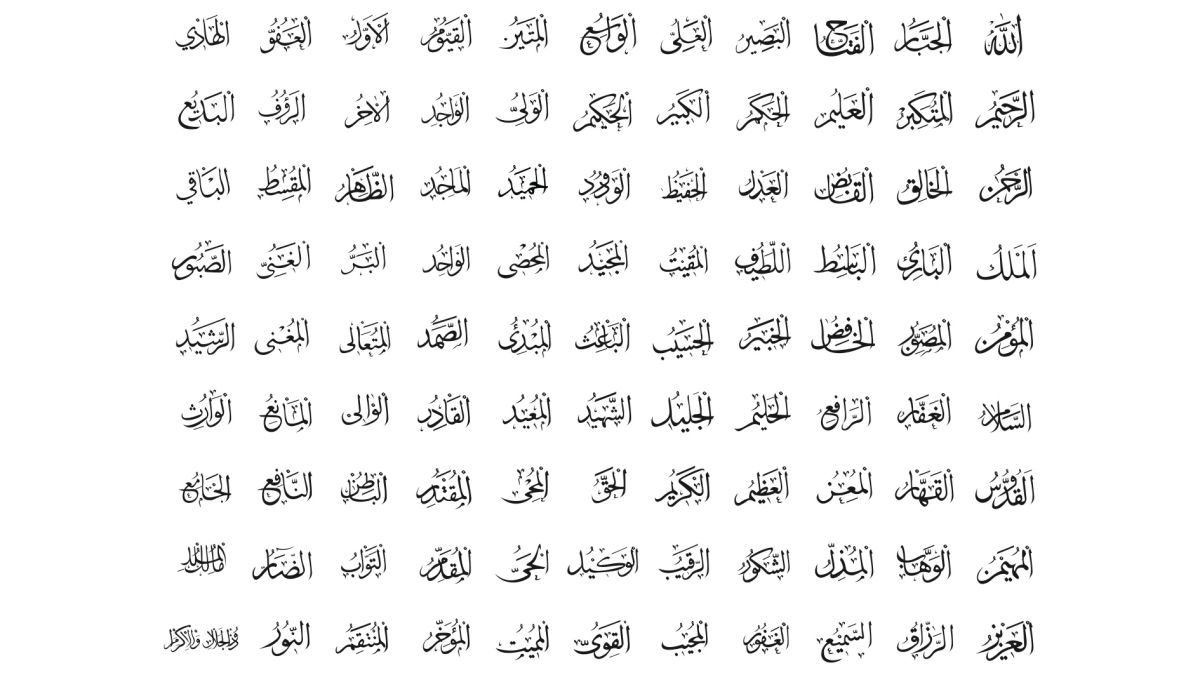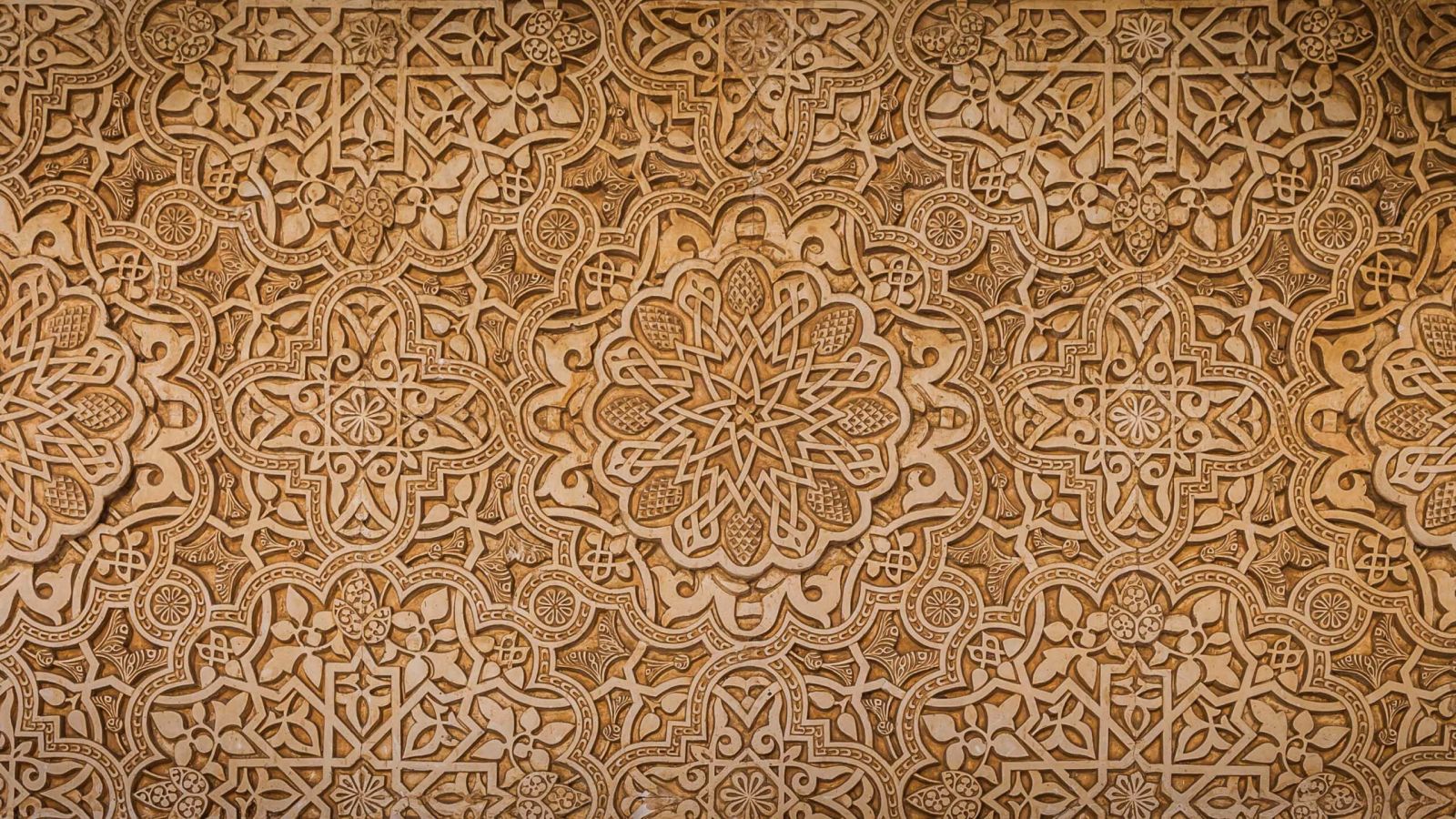A Simple Guide to Allāh’s Perfect Names and Lofty Attributes
Imām ʿAbd al-Raḥmān ibn Nāṣir al-Saʿdī


Al-Ghani (الغني): The Rich; Free of all Wants
Allāh—the Most High—said:
يَا أَيُّهَا النَّاسُ أَنتُمُ الْفُقَرَاءُ إِلَى اللَّهِ ۖ وَاللَّهُ هُوَ الْغَنِيُّ الْحَمِيدُ
“O mankind! It is you who stand in need of Allāh, but Allāh is Rich (free of all wants and needs), worthy of all praise.”
(Fāṭir, 35:15)
He—the Most High—is al-Ghani: The One who has complete and encompassing richness, in every conceivable way. This is because of His complete perfection and the perfection of His attributes such that no form or manner of deficiency may be associated with Him. He could not be except in a state of complete richness, for this is among the stipulations of His essence. Just as He shows nought but good treatment, magnanimity, courteousness, compassion and generosity to His creation. While His creations are unable—regardless of circumstance—to free themselves of their need for Him. They are completely dependent upon Him to be brought into existence, to survive and subsist, and for all of their wants and and needs. From the encompassing manner of His richness is that the treasures of the heavens and the earth and mercy are all in His hands. His goodness and magnanimity towards His creation is continual, occurring at every minute and in every instance, greatly and perpetually flowing from His hands days and night1. His goodness towards His creation is indeed abundant.
Also representative of His richness and generosity towards His creation is that He has commanded His servants to invoke Him, promising to answer their invocations and grant them their requests2. Giving them both that which they have requested and what they have not. The perfection of His richness is also exemplified in that if the first and last of the creation were to all gather in a single plane to seek their individual needs from Him, He would grant each and every one among them their requests, fulfilling their wishes and hopes, while His dominion is not lessened by even an atom’s weight3. Also representative of the perfection of His richness and His encompassing boons are the various forms of pleasure, unending enjoyment and perpetual bliss which He has stretched forth for the people who occupy the home of His generosity [Paradise]. The enjoyments contained therein have never been seen by any eyes, nor have ears ever heard of, nor could the human heart even fathom.4
It is also from the perfection and completion of His richness that He has not taken a companion or a son, nor a partner that shares in His kingdom, nor does He have need of a protector out of weakness. For He is the Rich by means of the complete perfection of His characteristics and attributes, the bestower of riches to His creation.
The Meaning of Al-Khāliq (the Creator), Al-Bāriʾ(the Inventor of all Things), Al-Muṣawwir (the Bestower of Forms)
Allāh is alone in His creation of everything (al-Khāliq, al-Bāriʿ). He has created all creatures with wisdom, fashioned them with accurate precision (al-Muṣawwir) and exemplified the creation of everything in existence. He created and originated it, bringing it into being at its appropriate time. He set the proportions of the creation in the most exemplary manner, composing it with perfection and mastery, then guided His creation to the means of its livelihood, survival and uprightness. He granted every created being its most appropriate and applicable form, then guided them to partake in that which has been prepared and created for their use.5
If He alone is the Creator, Inventor of all things, and Bestower of forms, possessing no partner in any of these actions, then He is the only deity worshipped in truth. There is none besides Him deserving of any form of worship. For He is the creator of the essences, actions and attributes of His creation. He guides whom He wills and sends astray whom He wills. He allows the believer to believe and the disbeliever to disbelieve, without forcing or compelling His servants to engage in that which is undesirable to them.
The encompassing nature of His creation refutes the Qadariyyah sect6 who claim that the actions of His slaves—both obedient and disobedient acts—are not among His creations or ordainments. They allege this claim as a “precaution”, fleeing from the belief that Allāh has forced or compelled His servants to engage in their actions. All the while they remain ignorant that Allāh’s perfection, and the perfection of His abilities negate such compulsion. Rather, He is fully able to allow His servants to engage in actions of His choice, which He wants and are also consistent with His divine preordainment and will. His matter is greater than having to compel His servants, more equitable and just than ever oppressing them. Instead, they are the ones who desire and choose the actions they engage in, and He is the one who allows them to do so. The wants and abilities of the servants are in complete agreement with Allāh’s will.
لِمَن شَاءَ مِنكُمْ أَن يَسْتَقِيمَ ﴿٢٨﴾ وَمَا تَشَاءُونَ إِلَّا أَن يَشَاءَ اللَّهُ رَبُّ الْعَالَمِينَ
“To whomsoever among you who wills to walk straight, and you will not, unless (it be) that Allāh wills, the Lord of the ʿālamīn (mankind, jinns and all that exists).”
(Al-Takwīr, 81:29)7
The Meaning of the Names of Allāh: al-Raḥmān (The Most Merciful to Mankind), al-Raḥīm (The Most Merciful to the Believers), al-Barr (The Most Subtle, Kind, Courteous, and Generous), al-Karīm (The Generous), al-Jawwād (The Magnanimous), al-Wahhāb (The Bestower), al-Raʾūf (The Kind)
The meanings of these glorious names of Allāh are close to one another. All of them prove that He may be described with mercy, encompassing piety and righteousness, the bestowment of frequent blessings, tenderness, and compassion. For every single blessing, beloved matter, that which causes happiness, or represents goodness that has been bestowed in the heavens and the earth are from Him. They represent His mercy, goodness, majesty and blessings. Just as the aversion of misfortunes, punishment, and fearful and harmful occurrences represent nought but his mercy and piety. As none is able to bring forth goodness save for Him. Just as none is able to avert evil save for Him.8
The Mercy of the Most High precedes His anger and overcomes it.9 The apparency of His mercy in His creation is undeniably evident. For He has inhabited the regions of the heavens and earth with creations, allowing them to possess hearts full of tenderness to other created beings by means of the mercy He has distributed among them, instilling it in their hearts. To the extent that even wild animals show tenderness and mercy to their offspring, despite their compassionate actions not proffering benefit to them, nor does it lead to a resultant outcome, reward, or punishment. Rather, the great love, affection, and compassion that is witnessed from them testifies as to the great care and attention of their Creator and His encompassing mercy. He granted boons comprehensively to all inhabitants of the heavens and earth. Then, he has made that which benefits them easily accessible, including their sustenance and provision. The avenues and paths towards their attainment are eased and simplified. And there is no moving, living creature on earth save that its provision is due from Allāh. And He knows its dwelling place and its depository (in the uterus, grave, etc.).10
He—the Most High—knows the matters that lead to their uprightness, righteousness, and goodness, which they themselves are ignorant of. Such that he has ordained the occurrence of these matters for them despite some of them being undesirable to them, whose goodness they lack the ability to fully comprehend. It may be that He allows misfortune to afflict them such that, by means of it, they arrive before that which is beloved to them. He shows them mercy through the afflictions of pain and catastrophe. For all manner of pain represents goodness for the believer who occupies himself with the station of patience. “How fascinating is the matter of the believer! All his matters pertain to goodness. If he is met with that which gladdens him, he is thankful and that is better for him. If he is afflicted with that which harms him, he is patient and that is better for him. For such applies to none save for the believer.”11 And it may be that you dislike a thing which is good for you and that you like a thing which is bad for you. Allah knows but you do not know.12
His mercy is similarly apparent in His legislations and commands, as is plainly evident to those granted insight, precise discernment and accurate perception. Those who possess understanding fully admit to this fact. His legislation represents an illuminating light, mercy, and guidance. It consists of mercy, facilitating one displaying the most exalted forms of that mercy, leading to honour, happiness and success. Just as He has ordained in His laws that which eases the affairs of the people, simplifying them, negating their difficulties and hardships. All of which unequivocally proves the encompassing nature of His mercy, goodness and majesty. Just as there is mercy in that which He has made forbidden. For it represents a means towards protecting the religion of His servants, maintaining their intellects, honourable standings, their physical wellbeing, their conduct and behaviour, and their wealth from evil and harm. Thus do all of his prohibitions ultimately relate to the protection of these matters. Also, his orders are further eased by their respective means—some of which are legislated while others are ordained. This represents the completion of His mercy. Just as his prohibitions are surrounded by hindrances and obstacles that prevent engagement with them, except for the one who chooses rejection; obstinately engaging in those disobedient acts whose actions hold no goodness. He has also legislated deterrents and impediments in addition to legislated capital punishments, designed to further prevent the servant’s engagement in these forbidden actions, discouraging them from it. Reducing the occurrences of evils in society to a great extent.
In general, His legislations and orders have only been ordained with comprehensive mercy, allowing one to arrive before eternal mercy and perpetual happiness (in the hereafter).13
Endnotes:
[1] Referencing the authentic ḥadith narrated by al-Bukhārī: 4684 and Muslim: 993.
[2]Referencing the verse in Surah al-Baqarah, 2:186:
وَإِذَا سَأَلَكَ عِبَادِي عَنِّي فَإِنِّي قَرِيبٌ ۖ أُجِيبُ دَعْوَةَ الدَّاعِ إِذَا دَعَانِ ۖ فَلْيَسْتَجِيبُوا لِي وَلْيُؤْمِنُوا بِي لَعَلَّهُمْ يَرْشُدُونَ
“And when My slaves ask you (O Muḥammad (صلى الله عليه وسلم)) concerning Me, then (answer them), I am indeed near (to them by My Knowledge). I respond to the invocations of the supplicant when he calls on Me (without any mediator or intercessor). So let them obey Me and believe in Me, so that they may be led aright.”
[3] Referencing the authentic ḥadīth with this wording as narrated by Muslim: 2577.
[4] Referencing the authentic ḥadīth with this wording as narrated by al-Bukhārī: 3244 and Muslim: 2824.
[5]Referencing the verse in Ṭā Há, 20:50:
قَالَ رَبُّنَا الَّذِي أَعْطَىٰ كُلَّ شَيْءٍ خَلْقَهُ ثُمَّ هَدَىٰ
[Mūsá (Moses)] said: “Our Lord is He Who gave to each thing its form and nature, then guided it aright.”
[6] See The Creed of Abul-Hasan Al-Ashʿari: Al-Ibānah ʿan Usūl Ad-Diyānah: [10] The Book, Chapter One: Exposition of the Belief of the People of Deviation and Innovation, pg. 4 by Shaykh Abū Khadeejah
[7] Source: Fatḥ al-Raḥīm: 30-31
[8] Referencing the ḥadīth with this wording as narrated by ʿUqbah ibn ʿĀmir (رضي الله عنه) who said: Thinking in a negative fashion was once mentioned to the Prophet (صلى الله عليه وسلم) who said: “The best of such thinking is that one harbours a positive outlook. Although such matters shall never deter the Muslim. Thus, if one of you should see that which is hated to him, let him say: O Allāh! None is able to bring forth goodness save for you and none is able to avert evils save for you. There is no power or change of state except by You.” Narrated by Abū Dāwūd: 3919 and graded weak by Shaykh al-Albānī in Silsilah al-Aḥādīth al-Ḍaʿīfah: 1619.
[9] Referencing the ḥadīth with this wording. Authentic: narrated by Muslim: 2751.
[10] Referencing the verse in Sūrah Hūd, 11:6:
وَمَا مِن دَابَّةٍ فِي الْأَرْضِ إِلَّا عَلَى اللَّهِ رِزْقُهَا وَيَعْلَمُ مُسْتَقَرَّهَا وَمُسْتَوْدَعَهَا
“And no (moving) living creature is there on earth but its provision is due from Allāh. And He knows its dwelling place and its deposit (in the uterus, grave, etc.).”
[11] Referencing the ḥadīth with this wording. Authentic: narrated by Muslim: 2999.
[12] Referencing the verse in Sūrah al-Baqarah, 2:216:
وَعَسَىٰ أَن تَكْرَهُوا شَيْئًا وَهُوَ خَيْرٌ لَّكُمْ ۖ وَعَسَىٰ أَن تُحِبُّوا شَيْئًا وَهُوَ شَرٌّ لَّكُمْ ۗ وَاللَّهُ يَعْلَمُ وَأَنتُمْ لَا تَعْلَمُونَ
“And it may be that you dislike a thing which is good for you and that you like a thing which is bad for you. Allāh knows but you do not know.”
[13] Source: Fatḥ al-Raḥīm: 29-30
Source: Al-Ḥaqq al-Wāḍiḥ: 47-48
Translated by: Riyāḍ al-Kanadī
Most Popular: Last 30 Days

















